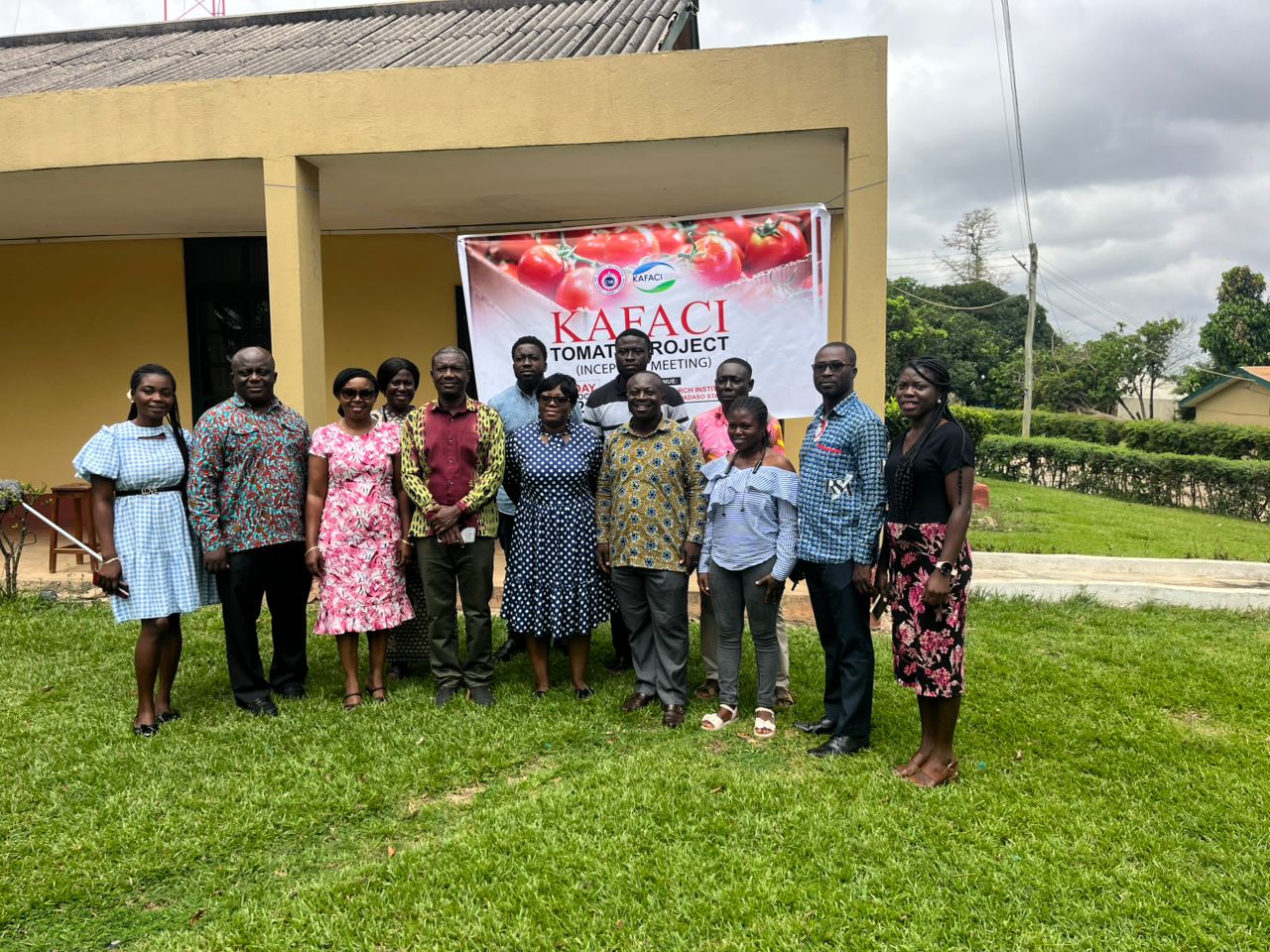Growing Resilience: The KAFACI Tomato Project Revolutionizing Ghana’s Tomato Industry
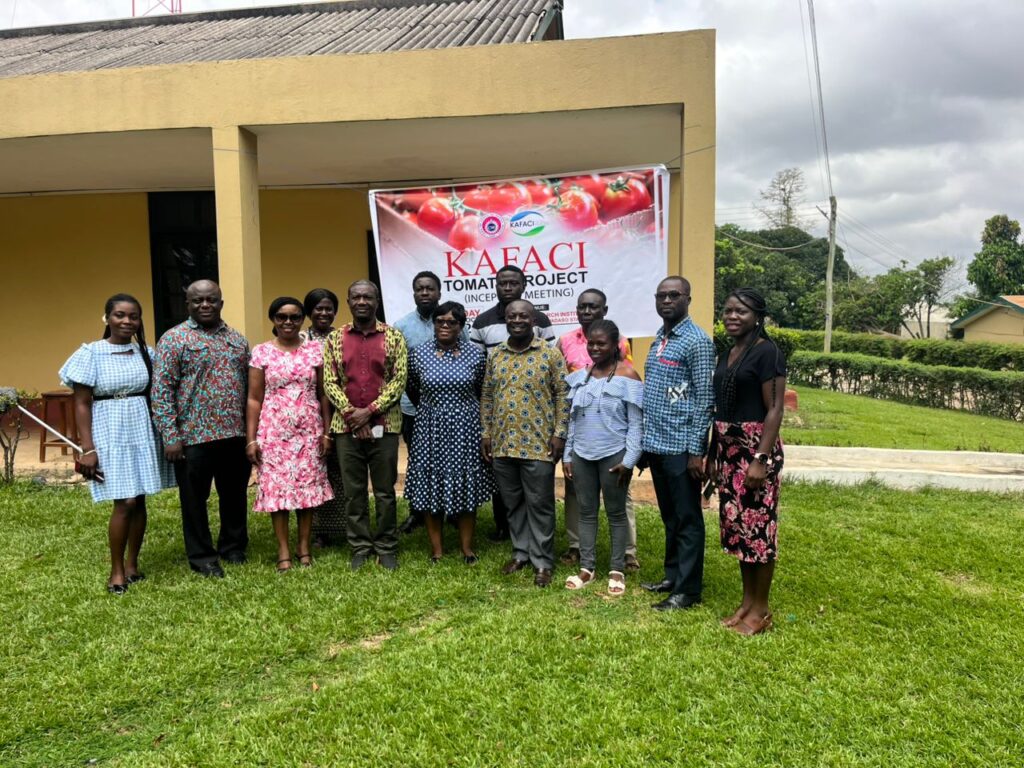
The Council for Scientific and Industrial Research, Crops Research Institute (CSIR-CRI), is proud to announce the launch of the KAFACI Tomato Project, a five-year initiative aimed at developing heat-tolerant tomato varieties to boost productivity and enhance the livelihoods of smallholder farmers in Ghana. This project builds on the successes of the previous KAFACI project, which came to an end in 2024, and represents a continued partnership between the Government of Korea and the CSIR-CRI to improve agricultural productivity and food security in Ghana.
About the Project
The KAFACI Tomato Project is funded by the Government of Korea through the Rural Development Administration (RDA) and the Korea-Africa Food and Agriculture Cooperation Initiative (KAFACI). The project is being implemented by the CSIR-Crops Research Institute (CRI) in collaboration with other stakeholders.
Launching the Project
The project was officially launched at the CSIR-CRI’s Kwadaso Research Station, where participants attended an inception meeting. In his welcome address, Dr. Ernest Baafi, Deputy Director of CSIR-CRI, expressed enthusiasm about the initiative. “We are excited to embark on this project, which will contribute significantly to improving the livelihoods of tomato farmers in Ghana,” said Dr. Baafi. “The project will address challenges facing Ghana’s tomato industry, including climate change, low productivity, and limited access to improved varieties.”
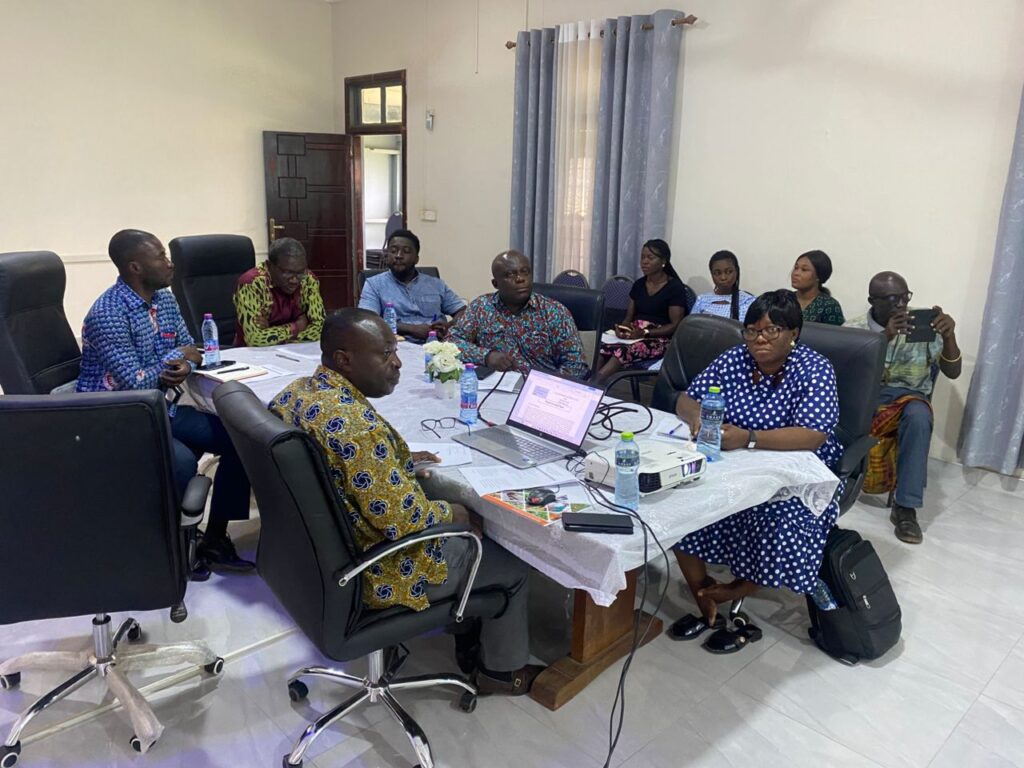
Project Overview
The KAFACI Tomato Project is a comprehensive initiative that seeks to develop and promote heat-tolerant tomato varieties, standardize cultivation technologies, and promote climate-smart techniques to enhance the resilience of tomato farmers in Ghana. According to Dr. Michael Kwabena Osei, Project Leader and Principal Research Scientist and Vegetable Breeder, the project will develop and promote heat-tolerant tomato varieties, standardize cultivation technologies, promote climate-smart techniques, build the capacity of farmers and other stakeholders, and establish a sustainable seed system for heat-tolerant tomato varieties. Dr. Osei noted that “We believe that this project has the potential to make a significant impact on the lives of tomato farmers in Ghana, enhancing their resilience to climate change, improving their productivity and profitability, and promoting sustainable agricultural development. To achieve this ambitious goal, we recognize the need for additional support and invite funding partners and donors to join us in this endeavor. Together, we can bridge the funding gap and unlock the full potential of our tomato farmers, contributing to Ghana’s food security and economic growth.”
Objectives
The KAFACI Tomato Project aims to achieve the following key objectives:
The project will focus on developing and promoting heat-tolerant tomato varieties that can thrive in Ghana’s challenging climate conditions. It will also standardize cultivation technologies to improve crop productivity and reduce losses. Additionally, the project will promote climate-smart techniques to help farmers adapt to climate change, build the capacity of farmers and other stakeholders, and establish a sustainable seed system for heat-tolerant tomato varieties.
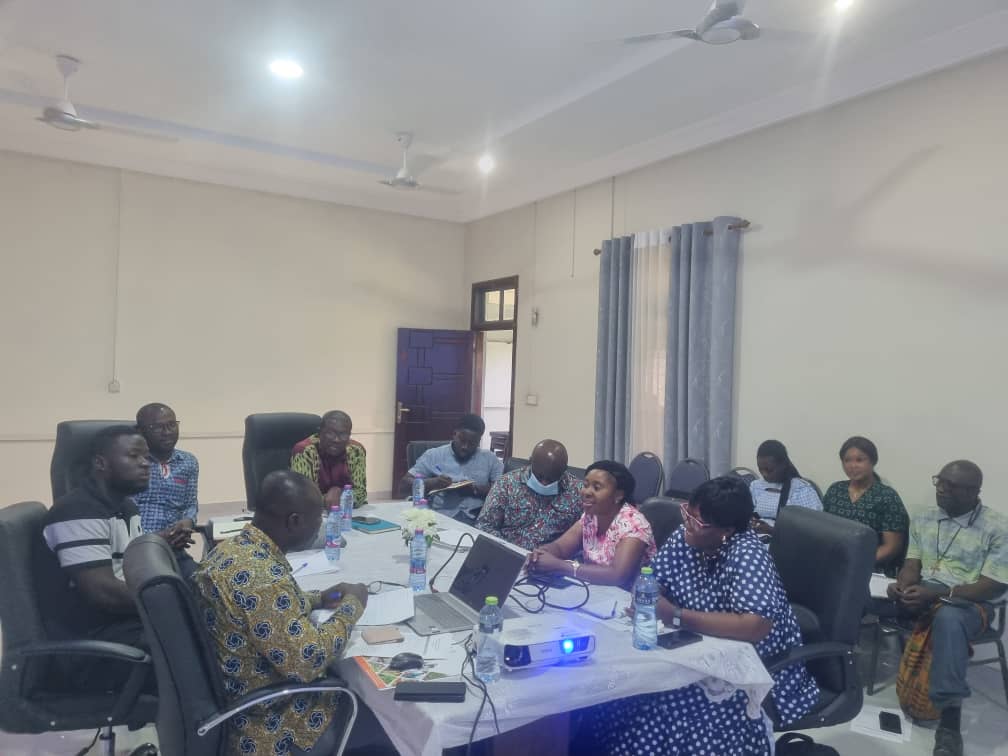
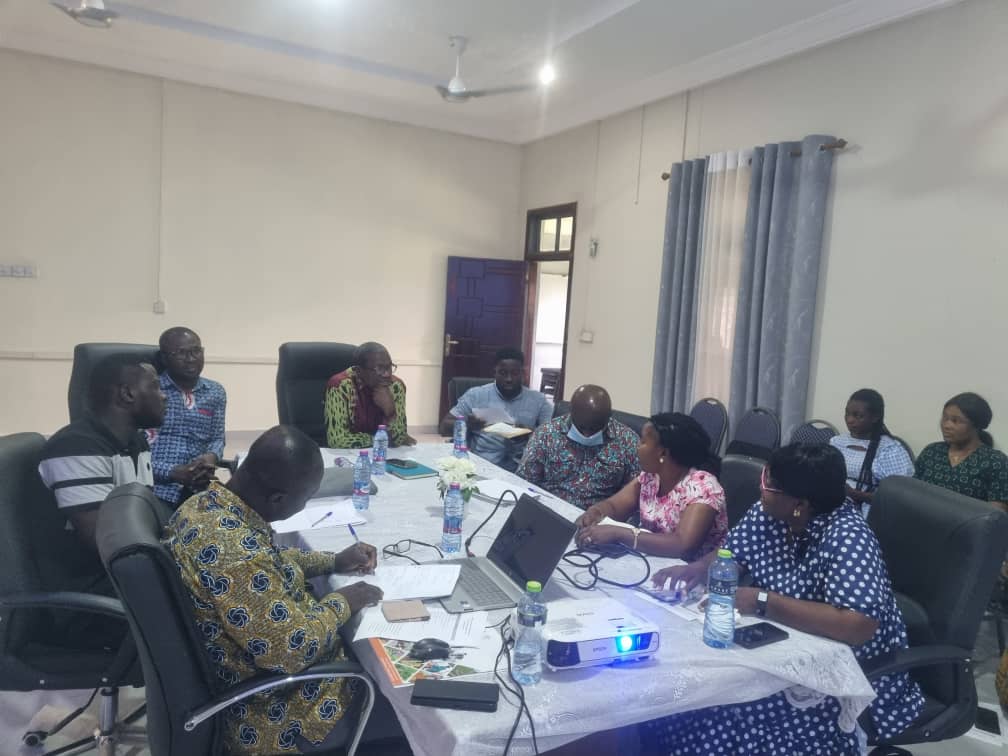
Expected Outcomes
The project is expected to achieve several outcomes, including:
- Improved crop resilience to extreme temperatures and climate-related shocks.
- Increased productivity and profitability for smallholder farmers.
- Enhanced livelihoods for farmers and their households.
- Improved food security and availability of nutritious food.
- Increased income for farmers and improved market access.
With the support of the Government of Korea through RDA and KAFACI, the CSIR-Crops Research Institute is poised to make a lasting impact on Ghana’s agricultural sector. We look forward to partnering with stakeholders to ensure the success of the KAFACI Tomato Project and improving the lives of smallholder farmers across the country.
Contributors: Lynda G. S. Nsafoah, Clara Boateng, Linda Agyeman
Publisher: Enoch Bobie Agyemang

